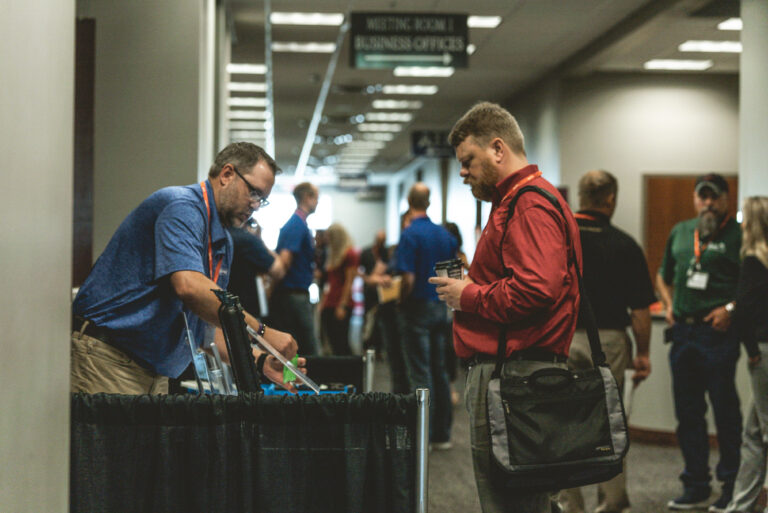Russ, Angela, and Cheyenne Sundstrom are the recipients of the 2019 Nebraska Leopold Conservation Award®.
The Sundstroms own and operate Broken Box Ranch in Moorefield, Nebraska.
The prestigious award, given in honor or renowned conservationist Aldo Leopold, recognizes extraordinary achievement in voluntary conservation and management of natural resources by American ranchers, farmers and foresters in 13 states.
Nebraska Governor Pete Ricketts presented the Sundstroms with a $10,000 award, and a ranch sign recognizing them as Leopold Conservation Award recipients, at a special ceremony in the Nebraska State Capitol in Lincoln on April 18.

In Nebraska. the award is presented by Sand County Foundation, Alliance for the Future of Agriculture in Nebraska (AFAN), Cargill, and the Nebraska Environmental Trust.
The Sundstroms are land stewards committed to productive, restorative and sustainable conservation practices on one of Nebraska’s biologically unique landscapes. The native prairie rangelands, hardwood trees, flowering plants, and abundant wildlife found on their ranch in the Loess Canyons are testaments to their conservation ethic.
The soil beneath the scenic, hilly landscape is highly-erodible. However, Russ Sundstrom’s proactive use of prescribed burning and innovative grazing techniques have nursed back the once-tired pastures and cropland that he bought from others. Productive rangeland with diverse vegetation results in quality forage for his beef cattle, and provides an oasis for wildlife including more than 250 species of birds.
Not only has Russ removed hundreds of acres of invasive cedar trees from his Broken Box Ranch, but he and his brother, Neil, cooperate and educate neighbors on conservation land management issues. They volunteer with the Loess Canyons Prescribed Burn Association, a landowner-led effort to burn invasive species from the rugged canyon landscape.
Russ is a skillful grazing manager who uses an innovative style of rotational grazing of his beef cattle. He intensely mob grazes an area to rid it of invasive species. This welcomes native vegetation to return to the landscape during the year-long rest period that follows. Intensive mob grazing around an area designated for a burn also reduces the risk of fire escape.
When Broken Box Ranch was accepted recently as a Rangeland Health Demonstration Ranch, it was further evidence of Russ’ leadership and innovation. He will be responsible for collecting data and monitoring effects of various management strategies and their impacts on wildlife, beef production, and soil and plant health. This community-driven landowner will then share his findings through public access and tours of the property.
The Sundstroms share large swaths of their ranch with the public through its enrollment in the Nebraska Game & Parks Commission’s Open Fields and Waters Program. Public hunting access provides wildlife population management of turkey, deer, prairie chickens, quail and elk, while other areas are managed for endangered species. In addition, he has established 20 acres of flowering pollinator habitat for bees and butterflies. Sometimes conservation success comes from what you don’t do to the landscape. They do not aerially apply herbicides or insecticides out of concern that it will kill non-target species. Instead, they spot spray for noxious weeds only.
Russ has a sharp pencil when it comes to knowing the economic impacts of his decisions on his business. His tireless devotion to leaving the landscape better than he found it is making a positive impact on his ranch and far beyond the Loess Canyons.
Sand County Foundation, the nation’s leading voice for conservation on private land, created the Leopold Conservation Award to inspire American landowners by recognizing exceptional ranchers, farmers and foresters.
In his influential 1949 book, A Sand County Almanac; Aldo Leopold called for an ethical relationship between people and the land they own and manage. He wrote it was “an evolutionary possibility and an ecological necessity.”
“The Sundstroms are an excellent example of the care Nebraska farmers and ranchers put into their land,” said Steve Martin, Alliance for the Future of Agriculture in Nebraska (AFAN) Executive Director. “What really impressed us is not only what they’ve implemented on their own ranch, but their willingness to share the lessons they’ve learned with others. That spirit of cooperation is fundamental to continuing to improve our stewardship of the natural resources that support our number one industry: agriculture.”
“Devotion to finding balance between production and conservation in agriculture is tireless, and often unappreciated work,” said Sammy Renteria, general manager of Cargill in Schuyler. “Cargill is proud to support the recognition of the Sundstroms through the Leopold Conservation Award. Their devotion to their land is evident by their efforts to reduce invasive cedar trees, and provide quality habitat for wildlife and livestock.”
“The Nebraska Environmental Trust is proud to be part of the annual Leopold Conservation Award in Nebraska recognizing families that do so much for conservation like the Sundstroms,” said Mark Brohman, Nebraska Environmental Trust Executive Director. “The Sundstroms have removed hundreds of acres of eastern redcedars on their land and thousands of acres in the region with their local prescribed burn association. Their burning and grazing practices have had very beneficial impacts to wildlife and cattle.”
“Leopold Conservation Award recipients are at the forefront of a movement by America’s farmers and ranchers to simultaneously achieve economic and environmental success,” said Kevin McAleese, Sand County Foundation President and Chief Executive Officer.
The Leopold Conservation Award in Nebraska is made possible thanks to the generous contributions from Cargill, Nebraska Environmental Trust, Alliance for the Future of Agriculture in Nebraska, Farm Credit Services of America, Rainwater Basin Joint Venture, Sandhills Task Force, Tri-State Generation & Transmission Association, Audubon Nebraska, Nebraska Game & Parks Commission, Lyle Sittler Memorial Fund, McDonald’s, World Wildlife Fund – Northern Great Plains, and Green Cover Seed.
For more information about the Leopold Conservation Award and Sand County Foundation, visit www.leopoldconservationaward.org.
